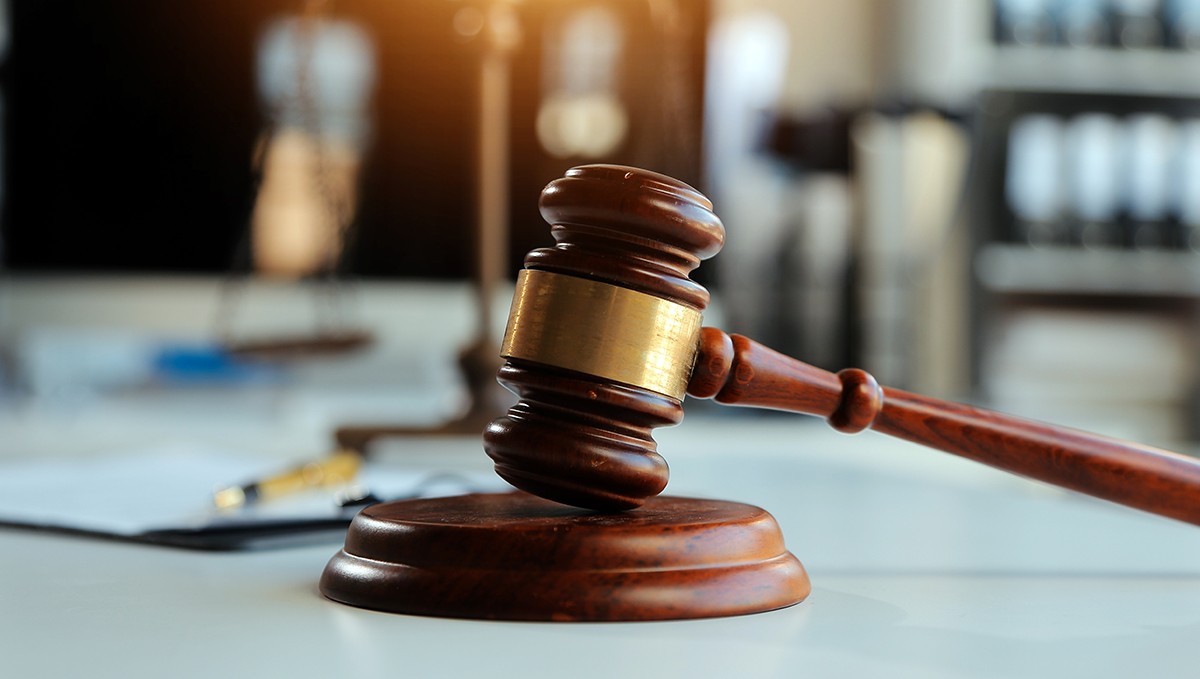In his forthcoming article, “The Roberts Court’s Assault on Democracy,” Milwaukee’s own U.S. District Judge Lynn Adelman pens a scathing and personal rebuke against the conservative majority of the United States Supreme Court, and in particular, Chief Justice John Roberts.[1] In his 35-page missive, Judge Adelman accuses “the Court’s hard right majority” of “actively participating in undermining American democracy” in two significant ways. First, “the Court has decided a number of cases which, taken together, constitute a direct assault on the right of poor people and minorities to vote.” Second, the Court’s decisions have “unfailingly increased the economic and political power of corporations and wealthy individuals and reduced that of ordinary Americans and entities which represent them, like labor unions.” Although Judge Adelman acknowledges that the fault for these unnecessary hurdles to voting and the ever-widening wealth gap in this country “is primarily with Congress[,]” Judge Adelman singles out the Chief Justice for particular scorn, lamenting that Chief Justice Roberts does not have the courage to “right[] the ship” as did Chief Justice Earl Warren in the 1950s and 1960s.[2]
Judge Adelman sets up his article by providing some historical context, highlighting economic, political, and legal reactions of conservatives to the egalitarian movements of the 1960s. These developments, Judge Adelman argues, began the shift toward the concentration of wealth and power at the top of the socio-economic ladder, and it is Republicans, particularly Republican elected officials, that are to blame.
The article continues with a veritable “Who’s Who” of high-profile Supreme Court cases that have been the bane of political progressives for decades. Judge Adelman plays all of our favorite hits, including:
- Bush v. Gore, a 2000 decision halting Florida’s recount and awarding the presidency to Republican candidate George W. Bush;
- Crawford v. Marion County Election Board, a 2008 decision upholding an Indiana statute requiring voters to present official photo identification cards in order to vote;
- Shelby County v. Holder, a 2013 decision striking down the formula provided in the Voting Rights Act for determining whether states and municipalities had to get approval for any change in their voting rules to ensure that the change was not racially discriminatory, essentially pulling out the statute’s teeth without tossing it out altogether as unconstitutional;
- McCutcheon v. FEC, a 2014 decision striking down the aggregate political contribution limit which capped the amount that a single donor could give to federal candidates and parties at $123,200 in a single election cycle;
- Janus v. American Federation of State, County, and Municipal Employees, a 2018 decision eliminating a public-sector union’s ability to collect a “fair share” or “agency” fee from workers who choose not to become union members but who are still protected by collective bargaining agreements negotiated by the union;
- Rucho v. Common Cause, a 2019 decision declaring partisan gerrymandering to be a political question beyond the reach of federal courts.
I agree with Judge Adelman that these cases, among others highlighted in his article, were wrongly decided. As to whether the majorities in these cases were motivated primarily by political considerations, it certainly is curious how frequently conservative-aligned interests have won and progressive-aligned interests have lost at the high court in the past 40 years. That so many consequential cases have gone the way of 5-4 ideologically driven splits in favor of conservatives, what is a reasonably informed, non-lawyer observer supposed to conclude?
Moreover, regardless of one’s opinion as to whether the outcomes of these cases were compelled by law or politics, it is difficult to dispute the effects of these cases on American life. Is there any doubt that gutting the preclearance provision of the Voting Rights Act amounted to “throwing away your umbrella in a rainstorm because you are not getting wet[?]”[3] The speed with which the states previously subject to preclearance enacted discriminatory voting procedures suggests that these states were champing at the bit to make it more difficult for poor and minority groups to vote.[4] Relatedly, can anyone credibly make the case that Voter ID laws exist to solve an actual problem with in-person voter fraud (which has been established time again to have a unicorn-like quality) as opposed to a calculated scheme to disenfranchise those that are statistically more likely to vote for a Democrat? Republican officials who have accidentally said the quiet part out loud don’t seem to think so.[5]
Despite my agreement with the positions taken in Judge Adelman’s article, I am nevertheless left wondering: “What was the point of publishing the article?” Unfortunately, I cannot conclude that the point was to contribute something new to the conversation. In this respect, I agree with Josh Blackman, writing for The Volokh Conspiracy that, “[t]here is nothing new or original here.”[6] The commentary on the legal analysis amounts to “I agree with the dissents.” The deleterious effect of these decisions on American democracy are, at this point, “truism[s]” on which most court observers have already made up their minds. Because there is no novel take on the legal analysis, and the effects of these Supreme Court decisions are already well-documented and thoroughly-covered, I have to assume that the reason for writing the article in the first place was to rustle feathers, particularly by impugning the motives of conservatives, Republican elected officials more generally, and the Court’s conservative bloc, led by Chief Justice Roberts, more specifically. Perhaps Judge Adelman sees value in a distinguished member of the federal judiciary (not just commentators) calling out what seems to be apparent to everyone listening.
The problem, I think, is the appearance of it all. Appearances matter. In fact, sometimes how things appear is more important than how things are.
Whatever the reasons, the article is a powerful turn-off for me, even though I identify politically as a progressive and do not genuinely dispute most of the content and commentary of Judge Adelman’s article. The problem, I think, is the appearance of it all. Appearances matter. In fact, sometimes how things appear is more important than how things are. This is why codes of judicial conduct on both the state and federal level advise that a judge should avoid not only actual impropriety, but the appearance of impropriety.[7] Mine is an institutional concern, and how things appear can have a dramatic effect on public confidence in the judiciary. It is for this reason, I think, that openly (or thinly disguised) partisan judicial officials are criticized and rejected.
In Wisconsin, we saw this play out in the 2018 Spring Primary to replace Justice Michael Gableman on the Wisconsin Supreme Court. Even though it is now a truism that Wisconsin Supreme Court elections are non-partisan in name only, Wisconsin voters rejected a more bluntly partisan campaign approach and ultimately elected the other liberal-backed candidate that was honest about her values but gave due respect to the importance of an impartial judiciary, both in appearance and in reality.[8] Maintaining the appearance of an impartial judiciary is precisely why Wisconsinites should be outraged about the virtually nonexistent recusal rules for judges in Wisconsin.[9] And it is for this reason why I just don’t like the appearance of judges openly and publicly impugning the motives of other judges, even when I agree with the content of the attack and that the target is deserving. This should not be normalized.
Some have made the argument that conservatives get away with this sort of thing all the time. Writing for Slate, Dahlia Lithwick and Mark Joseph Stern argue that “it’s about time” that a judge from the left threw a haymaker for once. They observe, “[n]owhere is the problem of asymmetrical rhetorical warfare more apparent than in the federal judiciary . . . . There seems to [] be an agreement that conservative judges demonstrate deeply felt passion when they delve into such issues [as the evils of “big government” and rants about Planned Parenthood], while everyone else demonstrates ‘bias’ if they decide to weigh in.”[10]
On this point, I find it hard to disagree, and the examples cited in the Slate article are good ones. Nevertheless, in my view, the response to these types of unnecessary diatribes from the right is not an unnecessary diatribe from the left. It will usually not embolden the left who appear to value greatly an actual and perceived impartial judiciary. It certainly might embolden the right by supplying ammunition to anger, and therefore energize, their base.[11] When the dust finally settles, nobody’s mind will be changed, and the judiciary will have two black eyes instead of one.
Judge Adelman begins his article with a callback to the image of the “judge as umpire” invoked by Chief Justice Roberts in his Senate confirmation hearing. Judge Adelman describes this analogy as “a masterpiece of disingenuousness,” and in my view, the myth of judge as umpire is certainly worth dispelling.
Judges are not umpires, and it is of limited value to perceive them as such. Third Circuit Judge Theodore A. McKee made precisely this point in his article, “Judges as Umpires” published in Hofstra Law Review in 2007.[12] Judge McKee observes that the metaphor “obscures a complex dynamic that is far more amorphous, elusive and troublesome than its simplistic appeal suggests.”[13] It creates the false notion that judges “are able to ignore the many kinds of bias that affect everyone else and discharge their duties in a mechanical manner that is removed from the society and its many forces.”[14] Worse still is that “it is very easy to applaud judicial expressions of personal belief that one agrees with as enriching jurisprudence, while viewing expressions of belief one disagrees with as the boogeyman of judicial activism.”[15] But, it is dangerous to continue to delude oneself into thinking that a judge’s decisions are solely the result of his or her objective application of neutral legal principles, and that judges have the unique ability to rise above themselves.[16] Indeed, such appearances and perceptions “makes it extremely difficult” for judges “to admit either publicly or privately that [they] are the product of [their] experiences, and burdened by human frailties like all other mortals.”[17]
For their part, Republican elected officials appear by their actions to disagree with Chief Justice Roberts’ assertion that the job of a judge is simply to call balls and strikes. What other reason could there be for the Republican-controlled Senate to refuse to hold a hearing for D.C. Circuit Judge Merrick Garland, the “umpire” largely regarded as a moderate and nominated by Democratic President Barack Obama to fill the Supreme Court seat that became vacant upon Justice Antonin Scalia’s death in February 2016?[18] What other reason could there be for the Republican effort to slow down confirmations of Obama-appointed judges to the district and circuit courts while cranking the confirmation speed to eleven when Republican President Donald Trump assumed office?[19] The implication is that Republican officials believe that the identity of the umpire affects whether the pitch will be called a ball or a strike.
This is, I think, the “disingenuousness” being referred to by Judge Adelman. It isn’t just that the umpire analogy is a misleading one; it was purposefully misleading because the Chief Justice knows that the strike zone in the law is, at best, a blurry one. They know that this imagery distorts the actual decision-making process but nonetheless perpetuate the appearance that they possess the rare ability to channel the true meaning of the law: “I am the humble vessel through which the founders speak.”[20] What is really meant, however, is “I understand the true intentions of the founders and anyone who disagrees is wrong.”
All of this is to say that the appearance of judges, that is, how they are perceived, matters a great deal to the legitimacy of and public confidence in the judiciary. Judges taking public swipes at one another, accusing each other of deciding cases based on their political beliefs, whether true or untrue, causes great damage to the judiciary as an institution. Maybe some find Judge Adelman’s frankness to be refreshing, but not me. Rather than preaching to the converted, we would do much better by educating the public about what judicial decision-making actually entails. Staying out of the political fray may frustrate those on the farthest margins of whatever political side is associated with a particular judge, but I prefer that judges not muddy themselves with such matters, even when I sympathize with the message.
The preceding portion of this essay was drafted, though not published, prior to Wisconsin’s April 7, 2020 Spring Election as well as all the various legal happenings immediately preceding it.[22] Within the matter of six tumultuous hours, Governor Tony Evers, by executive order, postponed the Spring Election due to public health concerns related to conducting in-person voting amidst the COVID-19 pandemic. The pandemic caused a tremendous influx of absentee ballot requests, so much so that election officials could not keep up with demand. In addition, there was understandably a significant drop in poll workers. As a result, the City of Milwaukee, a municipality of approximately 600,000 people, reduced its in-person polling locations from around 180 to 5. Shortly after the Governor issued his executive order, the Wisconsin Supreme Court overturned it in a 4-2 decision split along ideological lines.[23] Worse still, just over an hour after the Wisconsin Supreme Court overturned Governor Evers’s executive order, the U.S. Supreme Court stayed an order issued by U.S. District Judge William Conley that had extended deadlines related to absentee voting.
What was the caption of this U.S. Supreme Court decision, you ask? Harkening back to Bush v. Gore, this newest blow to democracy by the Court’s conservative “umpires” was a 5-4 ideologically split entitled Republican National Committee v. Democratic National Committee.[24] Can you guess who won?
If you guessed “Wisconsin voters,” you haven’t been paying attention. The combined effect of these recent decisions in Wisconsin was to, among other things, leave thousands of people who timely requested absentee ballots but did not receive them with a choice: risk the health and safety of them and their neighbors and face hours-long wait times in lines spanning several city blocks, or don’t vote.[25] No one should be compelled to make that choice.
Where was the Republican-dominated legislature in all of this, you might ask? If your answer was anything other than “doing nothing,” I have a bridge to sell you. Republican elected officials have acknowledged that low turnout inures to their benefit, especially when urban areas are the most suppressed.[26]
Although, maybe I am being unfair. Some Republican legislators did something. Forty brave GOP lawmakers mustered the courage to request that Governor Evers allow golf courses to remain open during the pandemic, provided they comply with social distancing practices. On behalf of Wisconsinites across the state, I extend a most sincere and not at all sarcastic, “Thank you.”[27]
The reason why I dislike Judge Adelman’s article, despite agreeing with its conclusions, is that I am made uncomfortable by judges acting like politicians. Publishing a 35-page article for what appears to be the sole purpose of pouring gasoline on the fire is below Judge Adelman.
Nonetheless, sitting here in the aftermath of the Spring “Election,” I have to admit that there is something about Judge Adelman’s “Network”-style rebuke that feels particularly American and becoming of a lifelong Wisconsinite. He’s mad as hell, and he can’t take it anymore, with all due respect to Howard Beale. Frankly, I’m mad too. Watching the slow but steady rot of American democracy is sad and exhausting. I’m frustrated that we live in a state of affairs where the system feels so rigged, predictable, and fundamentally contrary to my understanding of American values that Judge Adelman felt the need to publish the article in the first place. Maybe he feels the same.
____________________________
[1] Monitor Patriot Co. v. Roy, 401 U.S. 265, 272 (1971). (return) [2] In re: Policy Regarding Character Qualifications in Broadcast Licensing, 102 F.C.C.2d 1179, 1213 (1986) (return) [3] Id. (Emphasis added.) (return) [/et_pb_text][et_pb_toggle title=”Footnotes” open=”on” module_class=”footnote-cd” _builder_version=”3.7″] [1] Lynn Adelman, The Roberts Court’s Assault on Democracy, HARVARD LAW & POLICY REVIEW, Forthcoming, available at https://papers.ssrn.com/sol3/papers.cfm?abstract_id=3540318. (return) [2] Judge Adelman highlights such Warren Court favorites as Brown v. Board of Education (ending segregation in public education), Loving v. Virginia (allowing interracial marriages), Baker v. Carr (prohibiting racially motivated gerrymandering), Miranda v. Arizona (requiring procedural safeguards to protect against self-incrimination), and Gideon v. Wainwright (recognizing the right to appointed counsel in criminal cases). (return) [3] Shelby County v. Holder, 570 U.S. 529, 590 (2013) (Ginsburg, J., dissenting). (return) [4] Adelman, supra, note 1 at 13-14. (return) [5] Aaron Blake, Trump just comes out and says it: The GOP is hurt when it’s easier to vote, WASHINGTON POST, available at < ahref=”https://www.washingtonpost.com/politics/2020/03/30/trump-voting-republicans/”>https://www.washingtonpost.com/politics/2020/03/30/trump-voting-republicans/; Ari Berman, Top Republican Official Says Trump Won Wisconsin Because of Voter ID Law, MOTHER JONES, available at https://www.motherjones.com/politics/2018/04/top-republican-official-says-trump-won-wisconsin-because-of-voter-id-law/; Michael Wines, Some Republicans Acknowledge Leveraging Voter ID Laws for Political Gain, NEW YORK TIMES, available at https://www.nytimes.com/2016/09/17/us/some-republicans-acknowledge-leveraging-voter-id-laws-for-political-gain.html. (return) [6] Josh Blackman, Judge Lynn Adelman (ED.Wi) on CJ Roberts’s Confirmation Hearing: ‘Masterpiece of Disingenuousness, THE VOLOKH CONSPIRACY, available at https://reason.com/2020/03/10/judge-lynn-adelman-d-wi-on-cj-robertss-confirmation-hearing-masterpiece-of-disingenuousness/.I note that my agreement with Professor Blackman ends here. He begins his article with the oh-so-Trumpian “I have never heard of U.S. District Court Judge Lynn Adelman,” and he freely admits that he stopped reading the article less than half-way through and “skimmed the rest.”
Professor Blackman does not engage a single point made by Judge Adelman, though it is clear he disagrees. Instead, he dismissively waves it off, describing Judge Adelman’s article as a “screed” that “could have come from a Bernie stump speech.” Professor Blackman smugly notes that “[he] agree[s]” with the article’s dagger note stating that Judge Adelman “bears full responsibility for any errors” without so much as whispering what those alleged errors happen to be. Perhaps this is because Judge Adelman is exactly right that the points made in his article are “utterly predictable” “truisms.”(return)
[7] Canon 2, Code of Judicial Conduct for United States Judges, available at https://www.uscourts.gov/judges-judgeships/code-conduct-united-states-judges; Wisconsin Supreme Court Rule 60.03, available at https://docs.legis.wisconsin.gov/misc/scr/60. Lest I be misunderstood, I do not believe Judge Adelman violated any ethics rule by publishing his article. My critique is a practical, not an ethical one. (return) [8] Scott Bauer, Burns Takes Unusual Approach in Wisconsin Supreme Court Race, ASSOCIATED PRESS, available at https://apnews.com/131c2f09ad494ba589a404fac11b57a5. (return) [9] Patrick Marley, Justices reject recusal for cases with donors, MILWAUKEE JOURNAL SENTINEL, available at https://www.jsonline.com/story/news/politics/2017/04/20/wisconsin-supreme-court-weighs-recusal-rules-when-campaign-donors-litigants/100644698/. Without the slightest hint of irony, Justice Rebecca Bradley suggested that “[e]very judge and justice in Wisconsin should be highly offended” by the petition to strengthen judicial recusal rules “because it attacks their integrity.” This remark assumes that only actual impropriety is worth preventing. It fails to recognize that the appearance of impropriety can exist without actual impropriety and that both are harmful to the institutional legitimacy of the judiciary. (return) [10] Dahlia Lithwick and Mark Joseph Stern, A Federal Judge Condemned the “Roberts Court’s Assault on Democracy.” It’s About Time, SLATE, available at https://slate.com/news-and-politics/2020/03/federal-judge-condemns-roberts-courts-assault-on-democracy.html. (return) [11] Gregg Jarrett, Judge who attacked Chief Justice Roberts is a biased liberal flamethrower, FOX NEWS, available at https://www.foxnews.com/opinion/gregg-jarrett-judge-who-attacked-chief-justice-roberts-is-a-biased-liberal-flamethrower. (return) [12] Theodore A. McKee, Judges as Umpires, 35 HOFSTRA L. REV. 1709 (2007). (return) [13] Id. at 1710. (return) [14] Id. (return) [15] Id. at 1719. (return) [16] Id. (return) [17] Id. at 1715. (return) [18] Adelman, supra, note 1 at 8. (return) [19] Russell Wheeler, Senate obstructionism handed a raft of judicial vacancies to Trump—what has he done with them?, BROOKINGS INSTITUTE, available at https://www.brookings.edu/blog/fixgov/2018/06/04/senate-obstructionism-handed-judicial-vacancies-to-trump/. (return) [20] Bruce Thompson, Is Dan Kelly Good for Democracy, URBAN MILWAUKEE, available at https://urbanmilwaukee.com/2020/04/01/data-wonk-is-dan-kelly-good-for-democracy/. (return) [21] Id. (return) [22] See Molly Beck and Patrick Marley, Wisconsin justices block Tony Evers’ order to shut down election, U.S. Supreme Court restricts absentee voting, MILWAUKEE JOURNAL SENTINEL, available at https://www.jsonline.com/story/news/politics/elections/2020/04/06/tony-evers-issues-order-shutting-down-tuesdays-election/2954626001/. (return) [23] For his part, Justice Dan Kelly, the conservative-backed incumbent candidate in the hotly contested Wisconsin Supreme Court election, recused himself. (return) [24] 589 U.S. __ (2020), available at https://www.supremecourt.gov/opinions/19pdf/19a1016_o759.pdf. (return) [25] Jeramey Jannene, Long Lines at Milwaukee’s Polling Places, URBAN MILWAUKEE, available at https://urbanmilwaukee.com/2020/04/07/photo-gallery-long-lines-at-milwaukees-polling-places/; Steve Peoples and Scott Bauer, Wisconsin voters forced to choose between health, democracy, ASSOCIATED PRESS, available at https://wislawjournal.com/2020/04/08/wisconsin-voters-forced-to-choose-between-health-democracy/. (return) [26] See newspaper articles, supra, note 5. (return) [27] Mary Spicuzza, Group of 40 Republican lawmakers calls on Gov. Tony Evers to reopen Wisconsin golf courses, MILWAUKEE JOURNAL SENTINEL, available at https://www.jsonline.com/story/news/politics/2020/04/06/coronavirus-wisconsin-gop-asks-tony-evers-reopen-golf-courses/2953431001/. (return)


